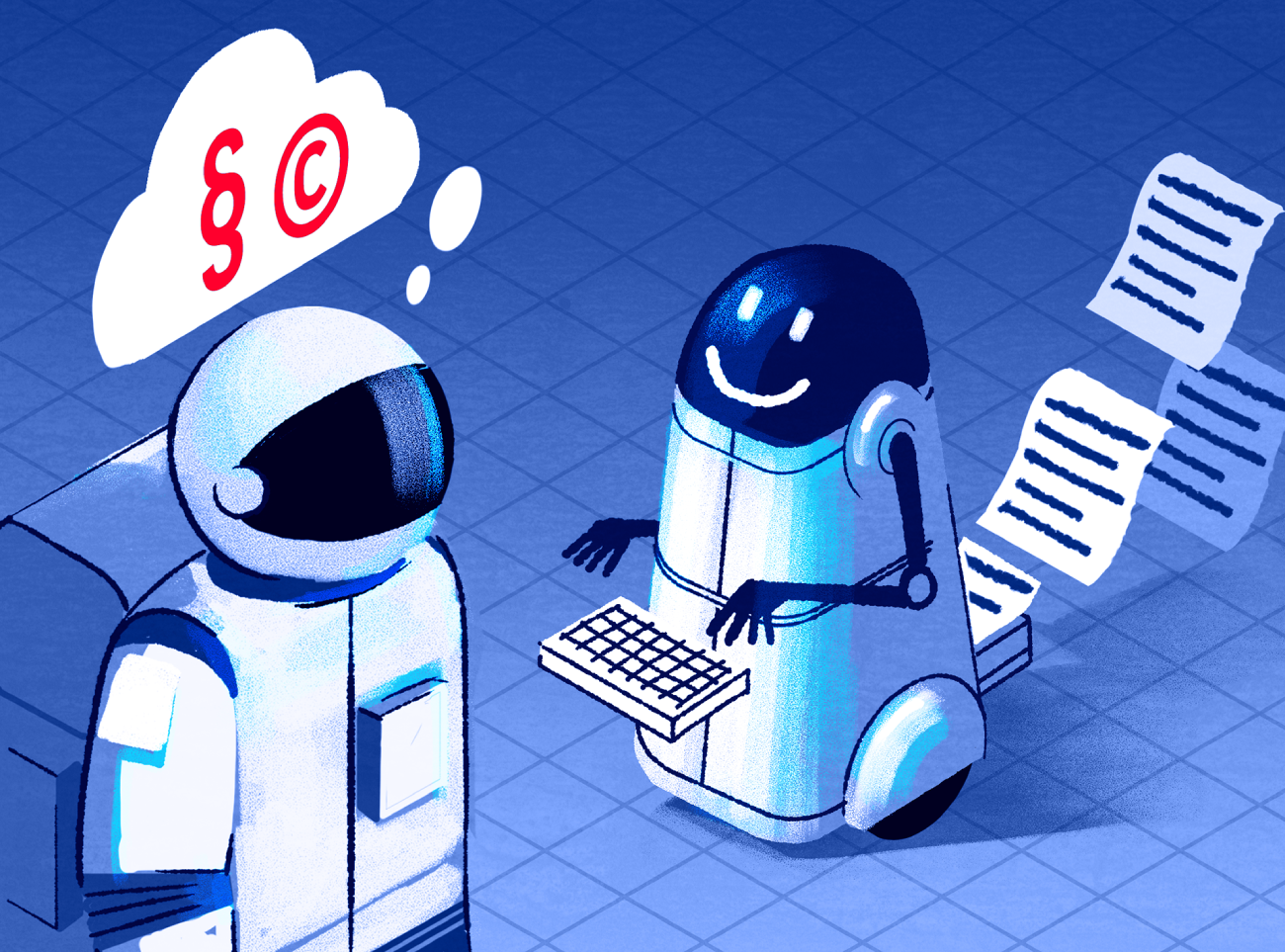Plagiarism and generative Artificial Intelligence (genAI)
GenAI tools are increasingly being used to create scientific texts. Below you will find information on the implications of this trend for the topic of plagiarism at ETH Zurich.
Legal framework remains unchanged
From a legal perspective, nothing has changed with regard to scientific integrity and plagiarism. In other words, the legal requirements continue to be the following:
- Copyright law and personal rights
- Data protection and information security
- ETH Zurich's guidelines on scientific integrity
- Rules set out to prevent plagiarism
- Citation rules of the various citation styles
- ETH Zurich’s declaration of originality
As an author, you are responsible for your scientific research, your information retrieval, and for your scientific text. Therefore, you have to consider the following aspects about genAI-based instruments regarding plagiarism:
- GenAI tools are not considered as authors or co-authors and may not be listed as such in publications.
- The tools use existing texts and generate new outputs based on your prompts. By doing this, the tools do not create new work in the sense of copyright law, which is why the tools are not considered as authors.
- You should consider that the genAI tools do not (reliably) identify verbatim or content-based quotations and the output can closely resemble the original. This can lead to a match in a plagiarism check.
Taking responsibility – checking output
The use of genAI tools means that they contribute to the creation of your scientific text. Therefore, please follow the guidelines below:
- Be transparent and honest: Identify the genAI tools used and document for which tasks you have used them.
- Ask your supervisor or the persons responsible for this issue in your department which genAI tools you are allowed to use in your scientific work and in what form you have to declare them.
- Clarify with your supervisor or the persons responsible for this issue in your department whether you need to include the prompts and possibly also the generated text in an appendix to your thesis or scientific publication.
Declaration of use
ETH Zurich's guidelines on generative AI recommend that the use of genAI tools should be declared. This can be described as a free text or in a table.
In the following table you will find a suggestion on how to document the use of genAI tools. The proposed declaration is not an official recommendation by ETH Zurich. The selection of tools does not constitute a recommendation for their use.

Please also consider the following important advice:
- Check what requirements exist regarding the use of genAI tools in your department, your scientific field or the journal in which you publish.
- Adhere to the specified rules of your citation style for referencing genAI tools.
- Text that you feed into genAI tools can potentially be saved by them and therefore reused. You should therefore consider whether your text contains sensitive or confidential information and data before submitting it to a genAI tool.
- Read the generated output carefully and check it for accuracy. This particularly applies to references as they may be incomplete or incorrect.
- Many sources have not yet been digitized or are not accessible online. Ask your supervisor, other persons in your department or the ETH Library what alternative sources exist and how you can gain access to them.
- Publishers and research funding agencies have issued guidelines for the use and declaration of generative AI tools. Please consult their websites for more information.
- The use of generative AI tools raises many further legal questions, such as: Can content from licenced scientific sources be fed to an AI tool? Is it permitted to share full texts, journal articles, books, book chapters or other data licensed by ETH Library with generative AI platforms? We have gathered the conditions in the ETH Library handbook in the section “Artificial Intelligence: Use of Licensed Full Texts in Generative AI Tools”.


